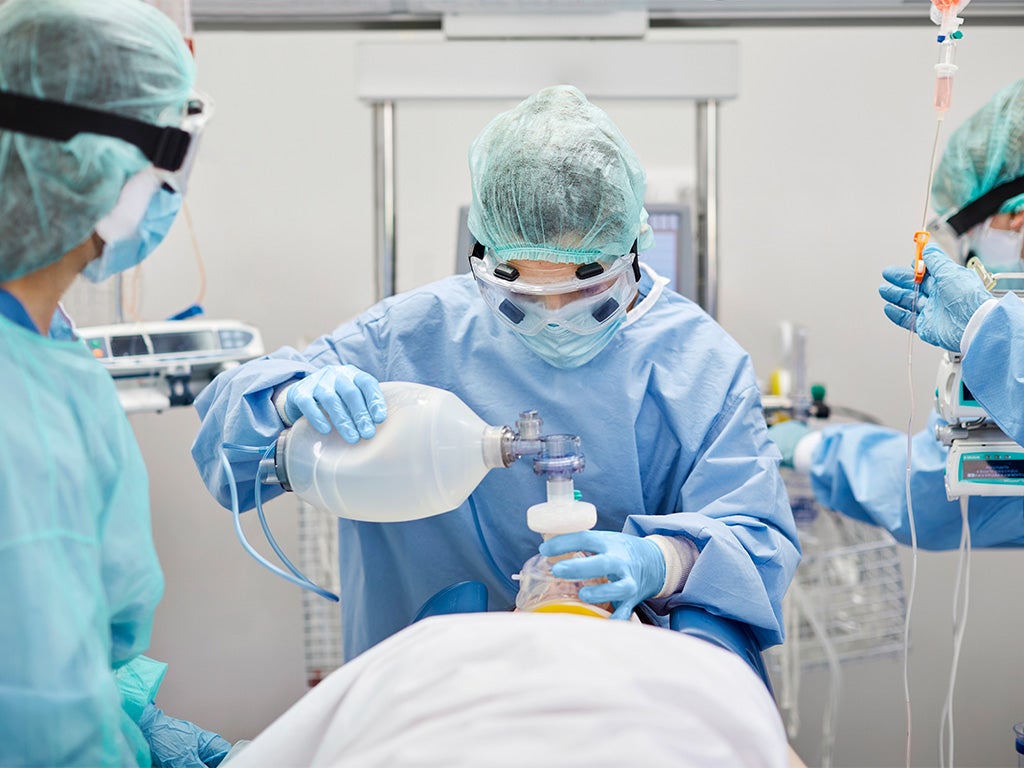
Claims insights: anaesthetists
Based on 428 compensation claims and regulatory complaints involving Avant members who are anaesthetists across Australia. All claims and complaints were closed over the five-year period from July 2016 to June 2021 (FY2017-FY2021).
Wednesday, 26 October 2022

1 in 19*
Avant anaesthetist members had a matter raised about the provision of their care each year (*five year average).
Data source: matters indemnified FY2017-FY2021.
Main issue addressed in claims and complaints

The types of anaesthesia associated with claims and complaints were general anaesthesia (37%), sedation (17%), regional block (6%), spinal/ epidural (6%) and local (1%). Other claims and complaints were not anaesthesia-related (34%).
Top three issues in the conduct of anaesthesia:
- Allegations about anaesthetic administration, skill or performance 45%
(e.g. adverse reaction, damage or injury from anaesthetic administration) - Dental damage 18%
- Claims of awareness during surgery 7%.
Most common procedures involved in claims and complaints related to anaesthesia
- procedures on the disgestive system (e.g. colonoscopy, gastroscopy) 22%
- musculoskeletal procedures 18%
- neurosurgical procedures 9%
- breast surgery 7%
- dermatological and plastic procedures 6%
(% out of total claims/complaints related to conduct of anaesthesia)
Practitioner behaviour issues
26% of practitioner behaviour allegations referred to impairment issues (e.g. mental/psychological, alcohol consumption).
- Issues of communication and attitude towards the patient (e.g. inappropriate comments/disrespectful behaviour) 22%.
- Inappropriate billing practices 13%.
(% out of total claims/complaints related to practitioner behaviour)
Severity of injury associated with claims and complaints
In 76% of claims and complaints, the patient experienced minor physical injury (e.g. dental damage) or no physical injury. In 24% of cases, the patient died or experienced major or catastrophic physical injury.
Assessment of the care provided
Anaesthetists were assessed to meet the standard of care in over half of claims and complaints.

Key points
- The most significant source of claims and complaints for anaesthetists was in the conduct of anaesthesia. The most common allegations were poor anaesthetic administration, skill or performance, dental damage, and awareness during surgery.
- Procedures on the digestive system and the musculoskeletal system were the most common in claims and complaints related to the conduct of anaesthesia.
- Practitioner behaviour allegations most often related to practitioner impairment and communication/attitude towards the patient.
- In one out of 4 of claims and complaints, the patient experienced major or catastrophic physical injury (including death).
- Anaesthetists met the standard of care expected in over half of claims and complaints.
Glossary
- Matters include claims, complaints, coronial cases and other matters such as employment disputes and Medicare.
- Claims refers to claims for money, compensation and civil claims.
- Complaints relates to formal complaints to regulators.
- Employment disputes are matters where Avant defends members against complaints or supports members to resolve employment issues.
- Medicare matters include Medicare investigations and audits.
More information
For medico-legal advice, please contact us here, or call 1800 128 268, 24/7 in emergencies.
For any queries on this analysis, please contact us at research@avant.org.au
Visit our Insights & Resources page for further educational content including webinars, eLearning courses, case studies, articles and factsheets.
IMPORTANT: Avant routinely codes information collected in the course of assisting member doctors in medico-legal matters into a standardised, deidentified dataset. This retrospective analysis was conducted using this dataset. The findings represent the experience of these doctors in the period of time specified, which may not reflect the experience of all doctors in Australia. This publication is not comprehensive and does not constitute legal or medical advice. You should seek legal or other professional advice before relying on any content, and practise proper clinical decision-making with regard to the individual circumstances. Persons implementing any recommendations contained in this publication must exercise their own independent skill or judgement or seek appropriate professional advice relevant to their own particular practice. Compliance with any recommendations will not in any way guarantee discharge of the duty of care owed to patients and others coming into contact with the health professional or practice. Avant is not responsible to you or anyone else for any loss suffered in connection with the use of this information. Information is only current at the date initially published [September 2022]. © Avant Mutual Group Limited 2022. MJN-992 09/22 (DT-2728)
The above retrospective review is of routinely collected and coded data. Our review is based on 428 compensation claims and regulatory complaints involving Avant members who are anaesthetists across Australia. All claims and complaints were closed over the five-year period from July 2016 to June 2021 (FY2017-FY2021).
More ways we can help you



